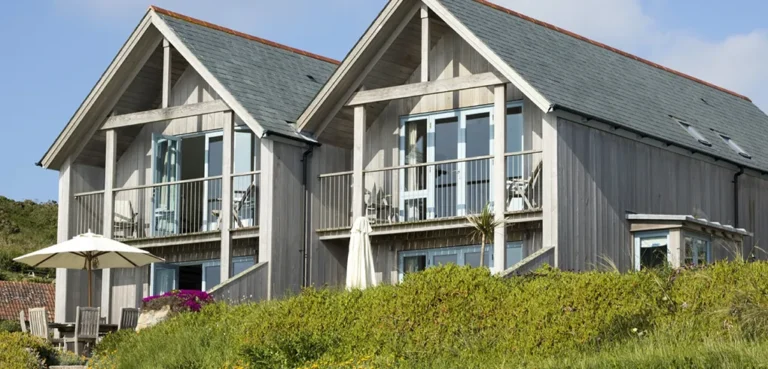Due to the nature of a holiday let, you will find that the criteria for this type of mortgage is different from residential mortgages and normal buy-to-let mortgages. If you’re struggling to find a holiday let property to suit your needs, going through a mortgage broker like John Charcol will help you find the best holiday let mortgage rates and deals.
What Deposit Will I Need for a Holiday Let?
When considering a holiday let mortgage in the UK, you’ll typically need a deposit of at least 25% of the property’s value. Some lenders may accept a 20% deposit, but these deals are less common and often come with stricter conditions. Offering a larger deposit, such as 30% or more, can provide access to more favourable mortgage terms and lower interest rates. Lenders will also assess the property’s potential rental income to ensure it can cover mortgage repayments.
What Costs Are Involved in a Holiday Let?
Running a holiday let comes with a range of upfront and ongoing costs that are important to budget for carefully.
Initial costs may include the property deposit, legal fees, stamp duty (including the second home surcharge), furnishing, and any renovations or compliance work needed to meet safety regulations.
Ongoing costs typically include mortgage repayments, utility bills, insurance (standard home insurance will not suffice and you’ll need specialist holiday let cover), cleaning and laundry services, maintenance, and general repairs.
You will also need to account for marketing or agency fees if you use a holiday letting platform or management company, which can range from 10% to 25% of your rental income.
In addition, there may be council tax or business rates, and depending on your income, tax on your profits. If the property qualifies as a Furnished Holiday Let (FHL), you may be eligible for certain tax benefits, but it must meet specific criteria.
What Insurance Will I Need?
Having suitable home insurance is a requirement for almost every mortgage. You’ll need to make sure you have the appropriate holiday let insurance to cover the building. As holiday lets have to be furnished, you might also want to make sure that you have contents insurance to protect your property and belongings, as well as insurance for your letting business.
How Much Income Do I Need?
The amount you can borrow for a holiday let will be based on the expected rental income or the averages of the high, medium and low seasons.
The mortgage lender will take the average rental income or the averages of the high, medium and low rental seasons, then they’ll stress test it. In this test, they’ll look to see if your holiday let can give you a rental income of at least 125% (basic rate tax payer) or 145% (higher rate tax payer) of the monthly payments of your mortgage, though some lenders could require a higher rental income.
Consider and include any times when there could be potential rental voids. Holiday lets are a highly seasonal business, so aim to make sure that you can keep up with your mortgage payments even during the low seasons and have a good plan to save money from high seasons to cover these downturns.
What Details Will I Need When I Apply?
As with any other type of mortgage, you will also need basic personal details when applying for a mortgage. The information you should prepare before applying includes:
- Personal information: name, date of birth, address, and more.
- Predicted rental income: historic and predicted figures can both be useful to help prove the income expected from your investment. Sometimes you may be buying a property that’s been rented out by the previous owner and has a strong history of bookings.
- Proof of income: details of other regular incomes you have, from employment, self-employment, other rental properties, etc.
- Details of other expenses: mortgage lenders will want to see what other outgoings you have, including other mortgages, debts, or required monthly payments.
- Other mortgage details: if you have another mortgage, plan to include the full details of the mortgage, in addition to repayment costs. This is the case whether you have residential or other investment mortgages or both.





